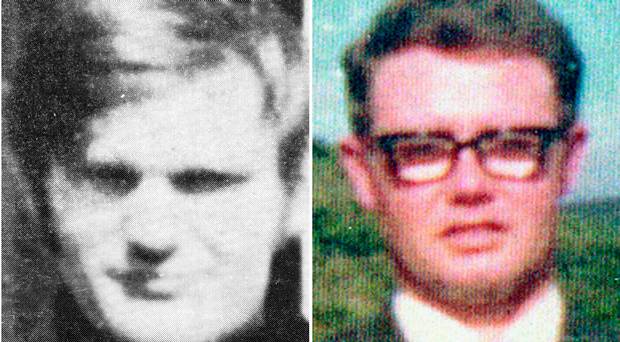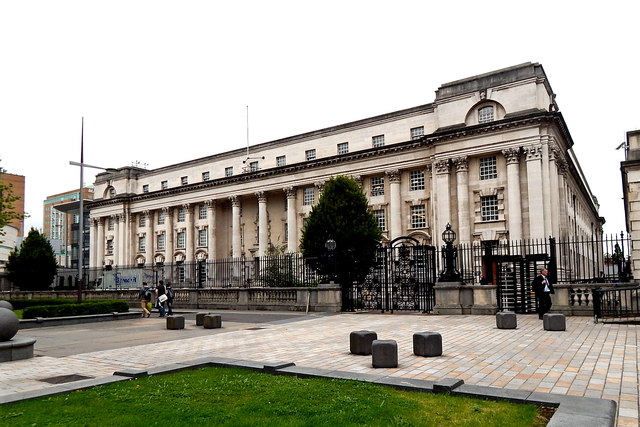
James Wray (left) and William McKinney murdered by British soldier on Bloody Sunday in Derry in January 1972
Counsel for the sister of one of Soldier F’s alleged victims claimed he never applied for screening during committal proceedings under way in Derry.
Fiona Doherty QC contended: “There is a clear error of law from the District Judge.”
Last week District Judge Peter Magill refused to lift an anonymity ban on Soldier F.
Soldier F is facing prosecution in connection with events in the city on January 30, 1972, when British troops opened fire on civil rights demonstrators, killing 13 people.
He is charged with the murders of James Wray and William McKinney. He is further accused of the attempted murder of Joseph Friel, Joseph Mahon, Michael Quinn and Patrick O’Donnell on Bloody Sunday.
Under the terms of an interim order the ex-serviceman’s identity cannot be disclosed.
The anonymity order is set to be re-examined at a later stage in the preliminary investigation at Derry Magistrates’ Court. But lawyers representing Mr Wray’s sister, Margaret Wray, are challenging the current prohibition on revealing Soldier F’s identity.
The alleged decision to permit him to be screened while appearing remotely is also being contested.
Seeking to judicially review the District Judge overseeing the committal proceedings,
Ms Doherty said Soldier F gave evidence in public view at the Saville Inquiry into Bloody Sunday.
However, he has appeared via videolink with his camera turned off for the ongoing preliminary inquiry. The development came as a shock to the families of Bloody Sunday victims already dealing with “very painful and emotional” proceedings, the court heard.
“The prosecution service and the judge appear to have taken the view that it is required by the interim anonymity order, and we say that’s plainly not the case,” Ms Doherty submitted.
She insisted that the anonymity order granted to Soldier F does not extend to his image.
“This man has the benefit of screening which he never applied for, was never granted and never had the benefit of in the past,” the barrister added.

High Court hears Soldier F anonymity case
Paul McLaughlin QC said: “The judge is telling the court and the public that it is his intention to rule on the merits of anonymity.”
During exchanges Mr Justice Colton also pointed out that reasons were given for how the preliminary inquiry was being handled remotely during the pandemic, with less control over any photographs being taken.
But adjourning the challenge to next week, he emphasised: “Any derogation from the principle of open justice has to be justified.”
Tags:




